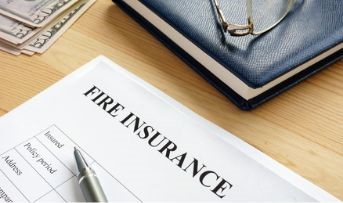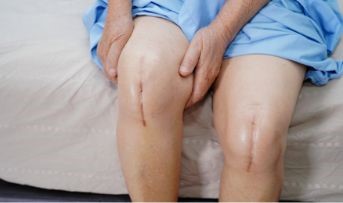General Insurance Blogs, Articles & Updates by - Magma Insurance
Have us call you
- RENEW YOUR POLICY
- BUY NEW POLICY

Find these exciting tips to get cheap domestic flight tickets for a budget-friendly trip
We usually hear that last-moment plans are the most exciting ones. But, they come with their challenges. Making these plans and executing them are two different things. Either you compromise on your destination or pay extra for airfare, hotel stay, etc.
We always end up figuring out ways in which we can reduce the overall expense during the course of our travel and finding cheap alternatives to the otherwise exorbitant pricing of the peak season chaos.
This article will discuss a few tips and tricks that you can use to book cheap tickets for your next vacation and spend those extra bucks on good food and shopping
1. Picking the right time:
This is the simplest way to save some money on flight tickets. Booking way ahead of your actual travelling date ensures that you get the cheapest option. A common trend is to book your tickets anywhere between fifty to sixty days before your trip.
The closer you are to the travelling dates, the higher are the prices. The fares are generally the highest during the last two weeks before the flight.
2. Be flexible with your timings:
Airlines generally tend to charge less for early morning or late-night flights. Although it can be a little uncomfortable, you can see a reduction of up to twenty per cent from the actual prices when you make a booking for the wee hours.
3. Clear your cookies:
Based on your internet search history, airfares increase if a particular commute route is repeated often. Clear all cookies from your browser. Another alternative is to use the incognito mode.
4. Opt for low budget airlines:
Low-cost airlines aim to attract more passengers by significantly reducing their fares. However, choosing a low-cost airline means you will need to compromise on other aspects such as legroom, food onboard, etc. But this is a foolproof way of finding cheap tickets even at the last moment.
5. Use multiple websites:
Surfing through various websites to figure out the lowest fare is another easy way of securing cheap tickets. Sometimes, websites fail to share all the flight options on a particular day. Hence, it is good to look through at least 3 to 4 websites to get the best prices and deals.
6. Use alternative routes:
Booking direct flights can be expensive but hopping flights can save thousands on the ticket. If you're flexible with your timings and routes, hopping flights are the best to offer you cheaper flight options.
7. Use debit and credit card offers:
Various special offers are always running on your cards throughout the year. You can get reduced fares and cashback by using these cards while purchasing your tickets. To look for offers associated with your card, you can directly go to the website or do a quick google search.
These are a few tricks that will help you find cheaper airline tickets. Remember that cheap tickets can also mean compromising on other aspects of your travel. There might be hidden costs, baggage restrictions, inconvenient departures, or a luggage mixup.
Before you set out on your trip, you must buy general insurance. This will act as a safety net if you face any issues during your trip. Buy general insurance online to avoid the last-minute chaos and get the financial protection and other benefits to make your trip more enjoyable!
Click HERE to buy general insurance online.
Disclaimer: The information provided above is for illustrative purposes only. To get more details, please refer to policy wordings and prospectus before purchasing a policy.

Five things to take care of before setting off on a desert safari
Do you plan your next holiday break enjoying the enthralling desert safari? If yes, then your vacation will inevitably be more remarkable than you could have imagined. Losing oneself in a unique sandy landscape is a captivating experience.
Though an ordinary day in desert safari is loaded with daring energy, there are numerous opportunities for a prosperous evening to add fascinating experiences to your vacation. However, it can also be annoying to overlook a few travel essentials.
Therefore, here are a few things to take care of before starting your desert safari journey.
1. Consume a modest diet:
We highly advise you to have a light meal at least an hour before you depart. Nothing too greasy or hot. A desert ride, particularly dune-bashing, may be rough, and you wouldn’t want to land up with stomach problems arising midway.
2. Get in the perfect state of mind:
Although a journey to the desert is often exciting and adrenaline-pumping, it may also be tricky at times. Make sure that you are both emotionally and physically fit for the event. Bring a positive attitude, a spirit of adventure, and maybe a little bit of determination, and you are good to go!
3. Do not carry extra clothing:
Bringing a lot of clothing on a desert safari may seem to be okay, but it is not. Your desert safari excursion includes a lot of walking and moving. Walking with too much or heavy luggage is intricate and can be tiring. So, it’s best to pack a few light clothes and a pair of easy-to-wear shoes.
4. Pack nothing unnecessary:
Many individuals carry unnecessary items with them that they will never use. Consequently, the additional weight and space make it difficult to enjoy the safari thoroughly. Just pack the things that can be useful during emergencies, like your medications, water bottles, etc. Stocking water bottles is essential while on a desert safari due to the excessive sweating that may make you dehydrated. Consume liquid intake at regular intervals and carry food packets to keep you energetic throughout the safari.
It would be better if you also kept bandages and aspirin in your hand luggage. Don’t forget sunscreen and other desert essentials like a hat, sunglasses, etc.
5. Consider your instructor’s suggestions:
You must never disregard the directions provided to you because there is nothing more important than your safety. Sand bashing can be dangerous if the golden rules of dunes are not followed. So, unless you are physically prepared to participate in it and other outdoor adventures, we recommend that you play it as cautiously as possible.
While you are entirely ready for your desert safari tour, spending time in the desert is not that simple but not too challenging either. With the proper guidelines and advice, you will be just fine to capture the best moments traversing through the desert and experiencing some sun, sand, and fun.
Desert safari is an enticing activity that everyone should take at least once in their lifetime. Research the best places to do it and put this on your bucket list. Similarly, do your research on insurance and get the best general insurance for yourself before leaving for the trip. General insurance can add a layer of safety to your travel plans and ensure compensation even if you face any damage or loss during your trip.
Click HERE to buy general insurance.
Disclaimer: The information provided above is for illustrative purposes only. To get more details, please refer to policy wordings and prospectus before purchasing a policy.

Fire insurance inclusions and types that you must know
Buying a high-value fixed asset like land or property is always expensive and risky, whether commercial or residential. Several external factors are outside the control of property owners, including fire, burglary, etc., which may result in extreme losses.
Purchasing insurance against such uncertainties is a prudent mechanism. It ensures that the amount of damages or loss is covered by the insurer, which is why buying fire insurance for any property you own is essential. Irrespective of whether you buy an insurance policy online or through an offline agent, you must be aware of what fire insurance covers, its inclusions, and various types to help you make the right choice.
Read on to learn all about fire insurance inclusions and types.
What is fire insurance?
Fire insurance is a contract that protects the insured against financial losses arising from damages or loss to his property or assets. Usually, it is purchased as a supplementary cover having several inclusions apart from just fires.
Essential features of fire insurance.
● It is purchased for one year
● It covers property, heavy machinery, stock of goods, furniture and fittings, etc
● The insurer can settle a claim on actual cash value or replacement cost basis
● It only covers direct loss to the insured property, making consequential loss claims non-admissible. However, add-on covers for the same are available at an additional cost
Inclusions of fire insurance.
As stated above, fire insurance covers unintentional risks beyond the scope of just fires. These include:
1. Fire:
The most apparent risk insured against is the fire itself. It has a broad range of inclusions and covers all fire-allied accidents, making the policy highly beneficial to business premises that regularly deal with fire.
2. Lightning:
Damages or losses caused by fire or lightning are within the scope of the policy. This may include cracks that run down the buildings or roof coverings, etc.
3. Explosion:
Blasts caused by high temperatures or high-pressure gases are included under the policy. However, read the fine print before you buy an insurance policy online. Many insurers make slight changes in their offerings and may not cover damages due to centrifugal force-based machines.
4. Aircraft damages:
Any fires caused due to an aircraft or an airborne device, including the dripping of explosive cargo, crashing, etc., are policy inclusions.
5. Violent activities:
These include a broad spectrum of terrorist activities, strikes, riots, or any public violence actions that may damage or set fire to the insured property.
6. Natural calamities:
Natural calamities are beyond the scope of the control of humans and include storms, typhoons, landslides, rockslides, floods, etc.
Types of policies.
The maximum claim amount that you can raise is based on the type of policy purchased.
1. Valued policy:
In this case, the contract states a pre-decided amount to be paid by the insurer in case of damage or destruction. This amount is non-alterable post-fire, and such a policy ensures high-value personal effects.
2. Specific policy:
This type of insurance is purchased where the insurer is liable to pay either the specified amount or the actual loss incurred, whichever is lower after a surveyor's inspection.
3. Average clause policy:
If the insured intentionally purchases a policy for a value lower than the actual property value, their claim is proportionately reduced to the extent of the loss incurred. This discourages the practice of underinsurance and minimises fraud.
4. Consequential loss policy:
This covers not just the direct loss but also the loss of profit due to a halt in operations due to damages or fire. However, the insured must pay an additional premium for such insurance.
5. Replacement policy:
The asset's market value is identified and then compensated for cost post depreciation. This ensures minimal losses for both- the insured and the insurer.
Considering the plethora of options available, you must read the inclusions, exclusions, and maximum permissible claims before you buy insurance policy online or offline to protect your assets from losses due to fire.
Click HERE to buy insurance policy online and protect your property from fire damages.
Disclaimer: The information provided above is for illustrative purposes only. To get more details, please refer to policy wordings and prospectus before purchasing a policy.

Do you own a diesel car? Here's how you can improve its mileage
Even though diesel engines produce more mileage, car owners are always looking to save more money by making their vehicles perform better. Most customers, including those who drive diesel-powered cars, are interested in learning how to get the best mileage from their diesel vehicles.
Here are some tips to get the most out of your diesel engines' fuel efficiency and cut operating costs.
Tips for increasing the fuel efficiency of car diesel engines:
The best place to start when trying to improve the fuel economy of your car's diesel engine is by examining your driving patterns or drivers' driving habits. Your fuel efficiency will increase if you train yourself to adopt good driving habits.
1. Eliminate idling:
Drivers should limit the time they spend stationary, especially when warming up their vehicle or stopping at a rest stop.
2. Utilise synthetic oil:
If you switch from standard oil to synthetic oil in a diesel engine, you can save up to 10% more fuel. Most of the time, using high-quality fluids will increase overall fuel efficiency.
3. Even as you accelerate:
To avoid excessive fuel burning, use smooth, continuous acceleration. Your diesel engine's fuel economy will improve with lower engine RPMs.
4. Take the cruise:
Use the cruise control instead of the gas pedal to keep your speed steady while driving on a flat road. You will consume less fuel overall if you use this strategy.
5. Scale back your highway speed:
According to studies, cars may travel at lower speeds without burning as much fuel. Given this, an 80 kmph speed limit for cars on the highway is typical. You will burn extra fuel and spend more money for every km per hour over 80 speed.
6. Look into your tyres:
Your fuel economy may also suffer if you have under or over-inflated tyres. Even though tyre condition should always be part of a pre-check, air pressure in tyres can change with temperature, going up in the heat and down in the cold. Try to maintain your car's pressure at the level advised by the car manufacturer.
7. Adjuvants for diesel engines:
It can be difficult to assess fuel additives impartially. Even though they promise that your intake valves, injectors, and carburettors will stay clean, the fuel savings may be so small that you won't even notice them. Most modern car engines don't require any additives, either. Before you spend your hard-earned money on engine additives, you should talk to licensed diesel mechanics and ask for their advice.
8. Air filters and intake devices:
A combustion engine's ability to operate effectively depends on air. If your engine doesn't get enough air, the engine will lose power. If you buy a better air intake product, you can stop this.
No matter what time of year, cold air intakes will increase diesel engines' long-term longevity and performance. Air filters also play a significant role in the air intake. Premium air filters may cost a little more, but they quickly pay for themselves by making your car use less gas.
9. Automobile monitoring:
We spent a lot of time discussing habits that can reduce fuel economy and how to change them to improve mileage. If you need a reliable piece of equipment to help you drive less aggressively, installing a monitor that shows your miles per gallon in real time can be a good choice. By keeping an eye on your most critical systems, you'll know immediately if you're idling too much or driving at an odd speed.
Speak to a qualified diesel technician if you need more advice about saving gas or installing aftermarket parts. Similarly, your car insurance will protect you from the financial obligations you might face if you hurt or accidentally damage your car or third-party vehicle. Car insurance online India improves the security coverage for your car and protects you against unforeseen events.
Click HERE to buy robust car insurance online India policy.
Disclaimer: The information provided above is for illustrative purposes only. To get more details, please refer to policy wordings and prospectus before purchasing a policy.

Did you know that going minimalistic may improve your mental health
Development and progress are always seen as indicators of positive changes. However, in pursuing material success, we often forget to prioritise what matters the most. While the next career milestone, pay raise, or luxury purchase can offer momentary happiness, it cannot undo the adverse impact of stress on your health.
Recognising the trend of declining productivity and fulfilment, young professionals emphasise their physical and mental well-being in their endeavours to achieve their vision. While online health insurance can protect you against physical illnesses and their costs, your mental well-being depends entirely on your environment, perspective, and personal space.
Recent studies have shown that going minimalistic may improve your mental health. But what is minimalism, and what is its impact on your health? Read on to learn all about the self-care method.
What is minimalism?
Considered a holistic lifestyle, minimalism finds its core belief in decluttering. While you may take this literally to get rid of excess tangible goods around you to achieve a sense of freedom and realise what is truly important, you can also apply it to your mind space. The human mind is a powerful asset capable of achieving what is impossible. To discover its true potential, you must give it nourishment, time, and the motivation to do what it does best- ponder and realise.
However, present lifestyles are characterised by hectic schedules and mundane tasks that take away the freedom to use one's time in their preferred manner, limiting creativity and making daily chores stressful. Applying principles of minimalism to your mental health can help reduce stress, minimise the risk of developing mental illnesses and focus on what is important.
Impact of minimalism on mental health:
Minimalism is a simplistic thought that is challenging to put into action. Getting rid of possessions is the most difficult task in this materialistically-powered world- be it with tangible possessions or intangible ideas. The benefits of the practice are unparalleled and can help you unlock the hidden potential within you that was unnoticed before such drastic changes.
1. Independent perspective:
Decluttering your thoughts allows you to sort them based on importance and identify what matters most. Once you realise that, it becomes easy to discover your passions, interests, and ideas, towards which you can strive to work and envision your thoughts coming to reality. This mindset allows you to be independent, free of any external influence and confident in your abilities.
2. Simplified prioritisation:
It is proven that multitasking deteriorates your productivity rather than enhances it. Once you have gotten rid of physical and mental distractions, only essential matters are left to attend to. This way, you can focus on people, work, and passions that rank higher in importance and devote your complete attention.
3. Reduced stress:
Stress is caused by the worry of underperformance in multiple aspects, including work, academics, sports, personal life, etc., and the fear of losing out on what you have. Minimalism emphasises letting go of possessiveness over immaterial things that only pose as distractions, helping one to detach from baggage that weighs one down and optimistically work towards meaningful goals.
4. Improved overall health:
Apart from relieving stress, minimalism has several positive effects on your overall health that can supplement your online health insurance coverage. Positive thinking and a straightforward approach are all it takes to view all situations positively, resulting in improved mood, reduced tiredness, and better overall health.
Practising a minimalistic lifestyle is a long-term endeavour, similar to buying online health insurance that supplements the benefits of the former. They are sure to maintain your overall health in top-notch condition when put together!
Click HERE to buy online health insurance.
Disclaimer: The information provided above is for illustrative purposes only. To get more details, please refer to policy wordings and prospectus before purchasing a policy.

Did you know about the best gifts you can give your biker friend
Whether it's a weekly Sunday ride with the crew, a quick trip when the weather's nice, or a much longer outing whenever you need to get away from it all and experience the freedom of two wheels, biking is always a good idea.
You can get all the grips, wallets, tool pouches, and other gift accessories to give your biker friend a safe, enjoyable, and memorable bike trip. These cool things can be good gifting options if you have a biker friend.
1. Bike backpack:
No ordinary bag should be used on a bike. Aerodynamics is an important factor when selecting the perfect backpack. Also, it should produce less drag. Many fantastic bike backpacks are available, which are slim, sporty, and classic designs with extra-space variants.
When choosing a bike backpack as a gift, think about how tall and heavy the person is. It would be best to consider whether the person getting the bag needs extra pockets for laptops, clothes, and other essentials. To keep the backpack securely fastened to the rider's body, adjustable shoulder straps and a hip belt are essential. Look out for waterproof backpacks to prevent the items from getting wet when it rains.
2. Bike toolbox:
A portable bike tool kit might make a fantastic present for your biker friend. Bike tool packs have everything a rider would need to fix something quickly on the side of the road. These practical kits, which can be folded or rolled up to easily fit into a backpack, are packed with screwdrivers, torque wrenches, and other tools.
Make sure you get any bike tools to ensure the gift will fit the friend's bike. A bike-specific kit can make sense to purchase if you are aware of the model of bike they ride. But if you want to be sure, you are usually better off buying one of the several universal-fit bike tool packages compatible with most bike models.
3. Communications system inside the helmet:
One of the most enjoyable and rewarding aspects of riding a bike can be going on group rides with friends and family but staying in touch is important when you're out. The ideal way to stay in touch when riding a bike is with a communications system built into the helmet. It improves safety, fun, and connection while riding. These communication devices use Bluetooth or Dynamic Mesh Communication (DMC) to set up a common communication channel between riders in a group or between riders and passengers.
4. Action cam:
These tiny but powerful cameras can be placed on a rider's helmet or bike's handlebar. They can assist riders in identifying their riding patterns and enhancing their technique. They are an excellent way to reflect on priceless memories of previous rides, including those with terrifying corners and stunning landscapes. These cams can offer useful information to help police identify negligent drivers after an accident.
5. Saddlebags:
Saddlebags might be a wonderful present for bike enthusiasts who enjoy long road trips. For serious off-road adventurers, you can fill these multipurpose backpacks with camping goods and clothing, footwear, riding equipment, road food, and other necessities.
These are a few top items you can gift your biker friend and make their ride comfortable and memorable. Just like you're planning to surprise your biker friend with a valuable gift, you also need to get them protected with reliable insurance. With a focus on bike protection and coverage, the best two wheeler insurance in India is the need. When their bike is damaged accidentally, it will pay for the repairs. It protects them financially from theft, natural disasters, vandalism, and accidents.
Click HERE to buy the best two wheeler insurance in India.
Disclaimer: The information provided above is for illustrative purposes only. To get more details, please refer to policy wordings and prospectus before purchasing a policy.

Complete guide on e-insurance account
Insurance is undoubtedly a saviour in unfortunate times. It is a guarded mechanism that allows you to prepare for financial losses arising from accidents, damages, or death against which you are insured. Insurance penetration, a ratio of insurance premium payments to the country's GDP, rose to 4.2% in FY21, still lagging behind the global average of 7.2%.
The slow but steady rise of awareness regarding insurance products amid the pandemic is the reason behind such progress. Picking up on increasing demand, insurance companies have refined processes to make their services more reliable and accessible. One such move is the launch of an e-insurance account which makes it easier for policyholders to keep track of and renew online general insurance and other crucial policies.
Read on to learn about e-insurance accounts and how to set one up.
E-insurance account.
An e-insurance account, also known as e-IA, is a step towards the digitalisation of the insurance industry. It serves as a repository that stores all your insurance policies- including life, health, motor, insurance, etc. In 2013, the IRDAI introduced the digitised policy to allow insurance to go paperless and give policyholders access to their insurance portfolio in a few clicks.
Fundamental features of an e-IA.
Hereafter referred to as e-IA, an e-insurance account provides the following features:
● Every individual can only open one e-IA in their name.
● Once linked, each insurance policy under the e-IA is known as an e-insurance policy.
● Data safety is ensured with each account holder being provided unique login credentials and account numbers for their e-IA.
Benefits of an e-IA.
1. Digitally secure insurance:
Preserving records online eliminates the possibility of theft or misplacement of policies. Additionally, the documents stay secure perpetually, making them easy to access for the nominee in case of the policyholder's death to initiate a claim at the earliest.
2. Simplified payment platform:
Visiting various websites to renew policies with multiple insurers is a hassle. E-IA simplifies the process by making it possible to pay your online general insurance premiums to various insurance companies from the insurance repository's online portal.
3. One time KYC:
KYC compliance has been a lax part of the process until recently. With constant changes to the insurance purchasing process to reduce fraud claims and loopholes, KYC compliance has become compulsory for buying any insurance policy. Instead of submitting the details multiple times while purchasing a policy, by stating your e-IA number, your policy will automatically be linked to your account, eliminating the need for providing KYC details.
4. Zero charges set-up:
You can open e-insurance accounts with your preferred insurance repository authorised by the IRDAI. This includes the Central Insurance Repository Limited, NSDL Database Management Limited, CAMS Repository Services Limited, and Karvy Insurance Repository Limited. These accounts are set up free of cost to incentivise customers to shift to digitalised platforms.
5. Convenient management:
There is no greater benefit of e-IAs than the ease of compilation. It makes it easy to view all your policies- general and non-general together and, keep track of the policy period, renewal date, and process premium payments. This overview is an excellent way to minimise the chances of a lapse in online general insurance and life insurance policies.
Opening an e-IA account.
Now that you're aware of the benefits of an e-IA, here are four simple steps to open your account:
1. Pick your preferred insurance repository from the four eligible repositories mentioned above.
2. Download the e-IA opening form available on their website.
3. Carefully fill out the form and attach self-attested KYC documents along with personal, bank, and contact details. You may not require KYC documents if opening your account through an insurance company, in which case, the company sends the details collected before.
4. Submit the documents and filled form to the insurance repository.
E-insurance accounts are set to transform the perception of the insurance sector and its products. With introductions like online general insurance, automated premium payments, and one-stop repositories, we anticipate Indian insurance penetration to catch up with global figures soon!
Click HERE to buy online general insurance.
Disclaimer: The information provided above is for illustrative purposes only. To get more details, please refer to policy wordings and prospectus before purchasing a policy.

Best tips to take care of your stitches to ensure a faster recovery
If you have recently operated on for surgery, you might be curious about how to recover quickly so you can return to your daily work routine. While you are in the hospital, your surgeon does his part, but once you are discharged, healing is your responsibility.
Also, remember a personal accident insurance policy offers comprehensive financial security to the insured against unforeseen events like accidental death, physical harm, partial or whole disability, and permanent and temporary disabilities brought on by accident.
Here are five tips to speed up your recovery so you can resume your life as soon as possible:
1. Prevent infection:
For your procedure to be successful, infection prevention is essential. One of the most specific and crucial rehabilitation activities is washing your hands before touching your wound or dressing your stitches.
Rare surgical site infections typically appear 30 days after surgery. Nevertheless, it is worthwhile to ask your doctor what you can do to keep your skin capable of preventing infection.
2. Give your body the necessary energy to heal:
Even if you don't feel like eating after surgery, giving your body the energy it needs to heal is vital. Selecting proteins such as chicken, eggs, and others is essential for healing. Fruits are a good source of vitamin C, which has also been proven to speed up recovery. Foods containing iron and B12, such as fish and eggs, aid in the body's production of the necessary new blood cells. Consume fibre and probiotics for the immune system to combat illness and restore your original health condition.
3. Verify your incision:
Even though it may not be your favourite activity, you must closely examine your incision multiple times a day. Is the wound red or pink? Are there any visible staples or stitches? These inquiries are crucial, and looking at your incision will allow you to ascertain whether or not your surgical site is still healing or has developed an infection.
4. Rise and shine:
When you can, get up and start moving. Moving encourages the flow of blood, which aids in the healing process. You can also prevent harmful blood clots by walking or getting the wounded body part moving. The likelihood of acquiring pneumonia is lowered by light activity. Once the doctor provides the go-ahead, begin the stretching and muscle-building therapy.
5. Observe the recommendations of your healthcare provider:
You will only make much progress if you hear this message. A postoperative patient should adhere to all the recommendations specified by their healthcare professionals.
Some guidelines may limit your freedom of movement, such as the recommendation to wait a few weeks following surgery before taking a bath, swimming, or lifting anything over 10 pounds.
6. Drinking and eating right:
After surgery, many people experience appetite loss. They might not feel hungry at all or feel queasy or constipated. Good nutrition and hydration can aid healing, reduce common risks, and help you recover fast.
7. Recognise when to visit the ER:
Call your doctor immediately if you're bleeding, having difficulties breathing, swallowing or drinking, urinating, or showing clear indications of infection. Your primary care physician or the emergency department should be your next port of call if you cannot reach your surgeon.
8. Inhale and exhale carefully:
Who knew that after some procedures, the way you've always coughed and sneezed wasn't the "correct way"? If you sneeze or cough improperly while wearing an abdominal incision, it can seriously damage your incision.
A new surgical incision can open up with a powerful sneeze. So, the incision must be braced while you sneeze or cough. You can accomplish this by covering the area with a cushion or using your hands.
Your post-surgery recovery depends on you adhering to the post-op instructions given by your doctor and showing up for your scheduled follow-up appointments. Additionally, taking care of your wound, eating healthfully to rebuild your strength, and managing your pain is crucial. Implement these top recommendations and invest in personal accident insurance online to help you completely focus on your recovery and not on medical expenses. Your accident policy will take care of all the finances and be a strong moral booster in the time of emergency.
Click HERE to buy personal accident insurance online.
Disclaimer: The information provided above is for illustrative purposes only. To get more details, please refer to policy wordings and prospectus before purchasing a policy.

